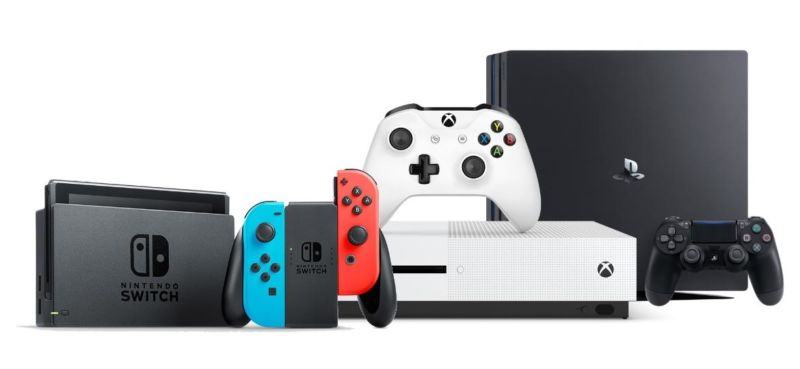
With the long-running trade war between the United States and China continuing to escalate, the Trump administration is now threatening to institute a 25% tariff on an additional $300 billion in goods from the country, a move that would cover almost all Chinese exports. In light of that threat, Nintendo, Microsoft, and Sony issued a letter today asking the administration to exempt video game consoles from any such tariff plans.
The seven-page letter, signed by the business affairs VPs of the three major console makers, argues that any tax on game console imports would "injure consumers, video game developers, retailers, and console manufacturers; put thousands of high-value, rewarding U.S. jobs at risk; and stifle innovation in our industry and beyond."
Since game consoles are sold at or slightly above the cost of manufacture, the cost of any import tariff would have to be passed directly on to "extremely price sensitive" consumers, the letter argues. "A price increase of 25% will likely put a new video game console out of reach for many American families who we expect to be in the market for a console this holiday season," the letter says.
That would cause a direct loss of $350 million for the US economy each year, according to a cited study from Trade Partners Worldwide, and "ripple effects" for third-party accessory and game makers and retailers down the line. That's not to mention the potential impact on the 65,000 US workers employed by the game industry, according to the letter.
More than 96% of US video game consoles are manufactured in China, the letter says, and shifting that manufacturing to another country would "cause significant supply chain disruption and... increase costs—even beyond the cost of the proposed tariffs—on products that are already manufactured under tight margin conditions."
The console makers also argue that console tariffs would limit the kinds of wider technology innovations brought about by the console game industry in the past, such as the Xbox Adaptive Controller, the Wii's motion controls, and PlayStation VR.
Console makers are far from alone in their pleading on this wide-ranging tariff threat. Hundreds of companies testified at trade hearings this month to argue that tariffs would lead directly to price increases for US consumers that would be horrible for businesses and the national economy at large. While previous rounds of Chinese tariffs had been targeted at specific manufacturing sectors to limit the direct effect on US consumers, the new tariff threats encompass practically all goods made in China, from shoes and jewelry to toys and electronics.
Discussions for a new trade deal between China and the United States fell apart last month. The administration has indicated a final decision on any tariffs will come after a meeting between Trump and Chinese President Xi Jinping at the G-20 Summit in Osaka, Japan, later this week.
reader comments
181